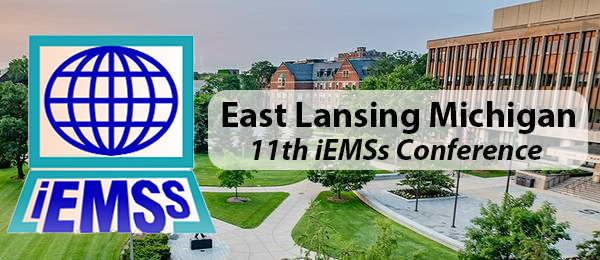Keywords
agile; scientific modelling; policy
Start Date
5-7-2022 12:00 PM
End Date
8-7-2022 9:59 AM
Abstract
Over twenty years have passed since the advent of ‘agile’ project management thinking in the software engineering domain (Beck et al. 2001). With exceptions such as Moyo et al. (2015) and Zare et al. (2020), ‘agile’ is not commonly-used in transdisciplinary modelling literature, nor routinely expected in transdisciplinary research calls. Partly, this is because there are well-established methodologies such as Companion Modelling (Étienne 2014) that adopt similar principles with different nomenclature. It is also true that, unlike more routine software development processes, the particularities and complexities of specific research questions combined with the relatively small volume of practitioners means it is not trivial to reuse or build on existing work from one case study to another. Hence, rapid development of continuously working modelling software over the course of several short ‘sprints’ can be impracticable. However, there is also a contribution from more traditional understandings of scientific culture by stakeholders, who might expect or even prefer the scientists to come back to them at the end of a project with ‘the answers’. Equally, the scientists themselves may also be concerned about potential political interference in the production of scientific artefacts, and, conversely, unduly influencing the processes of democratic governance. In a five-year proposed transdisciplinary modelling project, we have chosen to adopt an agile approach, with a view to exploring its effectiveness in maintaining stakeholder engagement and policy relevance without compromising scientific integrity. The anticipated benefit, for all parties, stems from scientific modelling insights being included in a more timely and useful manner in the knowledge pool used for pressing decisions on complex social and environmental issues. As part of this, the project specifically focuses on ‘front and back end’ processes for developing common understandings about questions to be answered with models, and interpretation of model results.
Developing agile approaches to scientific modelling in policy-relevant contexts
Over twenty years have passed since the advent of ‘agile’ project management thinking in the software engineering domain (Beck et al. 2001). With exceptions such as Moyo et al. (2015) and Zare et al. (2020), ‘agile’ is not commonly-used in transdisciplinary modelling literature, nor routinely expected in transdisciplinary research calls. Partly, this is because there are well-established methodologies such as Companion Modelling (Étienne 2014) that adopt similar principles with different nomenclature. It is also true that, unlike more routine software development processes, the particularities and complexities of specific research questions combined with the relatively small volume of practitioners means it is not trivial to reuse or build on existing work from one case study to another. Hence, rapid development of continuously working modelling software over the course of several short ‘sprints’ can be impracticable. However, there is also a contribution from more traditional understandings of scientific culture by stakeholders, who might expect or even prefer the scientists to come back to them at the end of a project with ‘the answers’. Equally, the scientists themselves may also be concerned about potential political interference in the production of scientific artefacts, and, conversely, unduly influencing the processes of democratic governance. In a five-year proposed transdisciplinary modelling project, we have chosen to adopt an agile approach, with a view to exploring its effectiveness in maintaining stakeholder engagement and policy relevance without compromising scientific integrity. The anticipated benefit, for all parties, stems from scientific modelling insights being included in a more timely and useful manner in the knowledge pool used for pressing decisions on complex social and environmental issues. As part of this, the project specifically focuses on ‘front and back end’ processes for developing common understandings about questions to be answered with models, and interpretation of model results.



Stream and Session
false